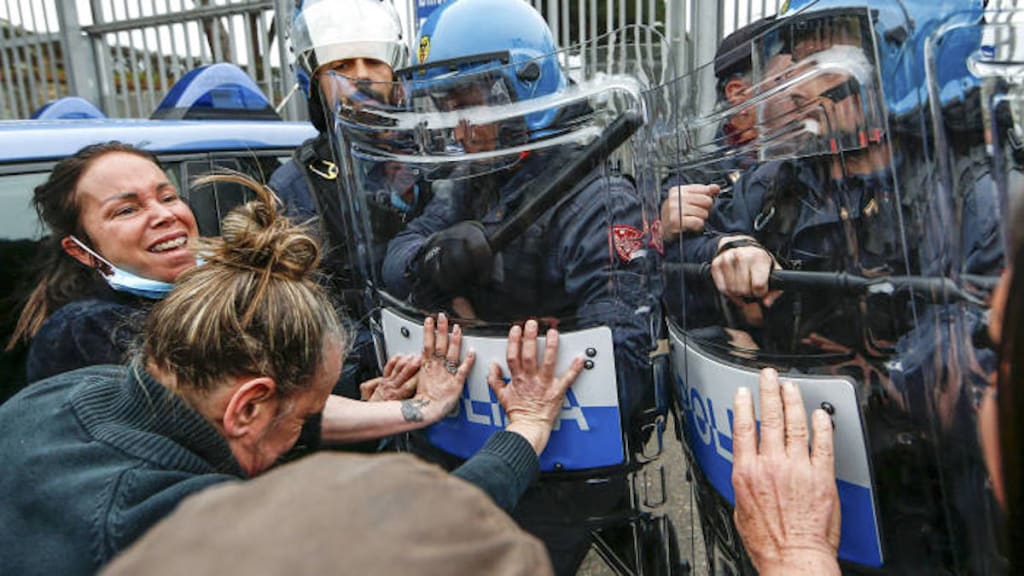Populism should not exploit Coronavirus crisis
Before or later, the coronavirus will no longer be a threat. Meanwhile, it will test people resilience fronting not just viruses but fake news and scapegoating.

In the financial crisis of 2008–09, stock markets, international trade and economic growth fell by more significant margins than in the similar period of the 1929–33 Great Depression. As in the 1930s, politicians placed aside differences, coordinating national policies to save the global economy.
The coronavirus, cause of the disease now called COVID-19, is a once in a generation event. Unless some of COVID-19's gloomier forecasts play out, the world will face one of the greatest crises in peacetime. This, sadly, takes place in a grim political atmosphere, similar to the early 30s.
The world has become more authoritarian, nationalistic, xenophobic, unilateralism, anti-establishment and anti-expertise over the last decade. The current state of strategy and geopolitics has worsened the crisis, not resolved it.
The failure of Wuhan officials to understand the severity of the problem early on, and their dismissal of medical staff, meant that precious time was wasted to contain the virus. The international community saw China's rising presence in multilateral organisations as positive progress. But now that has a doubtful impact on the World Health Organization (WHO), whose authority is generally perceived as overly submissive to Beijing, a stance that could weaken the organisation's public trust.
In its initial missteps, China is not alone.
President Donald Trump sees the pandemic through the stock market's lens. He has cut funding for the National Security Council and eliminated the office dedicated to fighting epidemics inside the NSC. He seems to make pressure to downplay the virus risk. Trump, and other officials, have declared the virus in the US economy could "have a positive ending" or bring "more jobs." Yet no one can avoid reality as the pandemic spreads and more people perish.
Many countries are still at risk.
Japan has failed to tackle the rapid spread of the virus onboard the cruise ship Diamond Princess. Cambodia allowed another ship, the Westerdam, to dock. Passengers, one of whom infected, disembark and move around. At least seven senior Iranian officials got the virus; one has already passed away. Now, the deadly virus spreads through the Gulf with potentially devastating geopolitical implications. Before taking more severe action, South Korea pretended to stop the spread of the virus in a secret cult.
European authorities are confronted with similar issues.
Spreading panic amongst the population is not in their interest. But they don't want to be, or appear, reckless either. For the moment, most of them have done reasonably well: plan hospitals and protocols for the virus ' arrival; implement airport safety inspections, and warn their citizens to avoid international travel and public gatherings, and wash their hands. However, if there is a significant increase in new Covid-19 cases across Europe (as it seems highly likely), policymakers will face the demands to do more. And there is a real danger that by spreading disinformation and wrongdoing, other politicians could exacerbate the crisis.
Far-right leaders have already demanded that their governments implement tight border controls in France, Germany, Italy and Spain. Rassemblement National's Marine Le Pen attacked the "doctrine of the representatives of the European Union's borderlessness," claiming that "a border protects citizens irrespective of the situation." Alice Weidel, the Alternative for Germany's leader in the Bundestag, blamed the spread of the virus on what she called "the open borders dogma."
Since Covid-19 has a several-week incubation period; it is impractical to expect border controls to avoid its spread. These steps would have severe consequences not only for the economy but also for the people's morale. They will be divisive and extreme.
The internet is full of incorrect information
According to a report by Blackbird, about 40 per cent of tweets on coronavirus were skewed–in the sense that they have "inorganic content" from across social media. A misinformed public may start putting pressure on the government to do more. In effect, the government may still be tempted to implement border controls or other punitive steps–irrespective of whether they make sense, merely to demonstrate that it is in charge of the situation.
The coronavirus debate could become even nastier, especially if political leaders connect the spread of the virus to the issue of refugees, which is back on the agenda of the EU. In Poland, after all, it was PiS chief Jaroslaw Kaczynski who argued in 2015 that the country would not welcome Middle Eastern refugees because they could carry "various forms of illnesses and diseases". Italy's League leader Matteo Salvini and the Greek administration have made similar comments. Salvini has asked for the resignation of Italy's prime minister, Giuseppe Conte, claiming that the latter's choice to save refugees at sea has served spread disease at home. Also, the Greek government has mentioned the possibility of infection with coronavirus as a reason to crack down on asylum seekers on Lesbos and Chios islands.
The coronavirus could become a weapon in the broader, and gloomier, political fight over migration in Europe.
The outbreak has helped the cause of those who have long resisted refugees–mainly the same parties and politicians who support tight border controls. Yet if the public debate plays the presumed connexion between the virus, borders, and refugees, then concerns about national integrity and ethnic supremacy will come increasingly close to that. The internet is full of fabrications about Chinese eating habits as an alleged source of the virus; there is, in fact, a growing consensus among scientists that Covid-19's originators must be more complicated. Never the less, the idea plays on rising Sinophobia.
The moment requires a collective international response.
In 2008, governments mostly respected experts. Sadly in recent months, no such response has been forthcoming. In Saudi Arabia, the last G20 accomplished little.
World leaders and their most advisors should discuss and decide on best practise preventing the spread of the virus across the world, not just within their borders. This involves recognising the limitations of travel bans, which, if overused, can have an outsize economic effect, and put a joint effort to find a vaccine and ensure that it is widely available, not only to the richest few.
Understandably, leaders continue to reassure their people about the future, even if they prepare for the worst— hence the constant rhetoric about the economy remains high. Nevertheless, to reduce the severity of the recession that will follow a pandemic, they should propose an economic policy to keep the global economy alive, plausibly providing a boost to government spending.
Stronger states must aid countries with the poorer capacity to cope with the crisis's challenges, even if the countries are rivals. The US and others should consider temporarily relaxing sanctions against vulnerable nations, such as Iran and North Korea, to fight the virus. Once the emergency has ended, there will be time to reimpose the restrictions.
While the coronavirus spreads, populism could thrive.
Whether it does so will depend mainly on the kind of language politicians and the media use to discuss the virus and how governments will manage the crisis. And whether citizens view their observations on the situation to be credible. As such, governments should base their decisions and directions on the evidence rather than rumours. And they should concentrate on what is under their control rather than assume that they can stop the virus at the border. Ultimately, aside from public health, it's not about open borders but a democratic society at risk.
COVID-19 is becoming the third big post-Cold War crisis following the 11 September 2001 terrorist attacks and the 2008 financial crash. This crisis may involve more significant damage than the other two and has shown populism's deficiencies as a model of government. Expertise is essential. Institutions are essential. There are in a global society. An informed answer does matter, even if it is controversial. The system has to work again.
About the Creator
Anton Black
I write about politics, society and the city where I live: London in the UK.






Comments
There are no comments for this story
Be the first to respond and start the conversation.